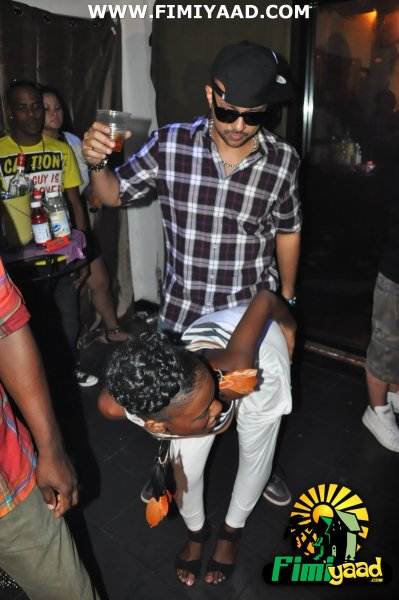BIRDS OF A FEATHER- GOODMORNING
by Ron Carlson
I never pondered all the implications of living in a shrinking global community until I read Mark Leibovich’s hilarious column in the Washington Post exposing the recent explosion of superficial sub-communities springing up in chat rooms near you.
His unmeasured response to social organizational overload invites other beleaguered world citizens to join “the ‘tired-of-the-word-community’ community.”
I never pondered all the implications of living in a shrinking global community until I read Mark Leibovich’s hilarious column in the Washington Post exposing the recent explosion of superficial sub-communities springing up in chat rooms near you. His unmeasured response to social organizational overload invites other beleaguered world citizens to join “the ‘tired-of-the-word-community’ community.”
Sign me up, Mark, and please send my official club card! I love being in on the ground floor of something really big.
I laugh at folks who belong to the “rat terrier community,” the “refrigerator magnet community,” the “red-haired, stumpy-stepchild recovery community,” and the “I’ve been done wrong by the cowboy’s love-song community.” But then I consider my own community involvement, and I recognize I’m just as goofy.
I belong to the “baseball glove collector’s community” (hey, we got our own newsletter!), the “virtual Still’s Disease community” (everybody needs somebody who gots what you got!), the “I can never find my handy pocket-pal organizer community,” the “I cook without a recipe community,” and the ever-expanding “we think the Yankees stink community” – important, all of them.
Human nature is such that we like to congregate with folks who like what we like. Birds of a feather flock together. We’re inclined to hang out with people whose interests and perspectives resemble our own. We bond with fellow pilgrims who march to our beat. We tend to commune with people who share our common beliefs.
Community is clearly a big deal. It often defines us. It’s hard to shake the nerd image if all your running buddies are nerds. The same goes for geeks, jocks, and preppies. We’re wired to believe there is strength in numbers and security in attachments.
Community rules.
Recognizing the central role that community plays in our socialization, we agonize over the trivialization processes at work. It pains us to see community made artificial and token by cheap imitations of the genuine article. There has to be more to community than sharing a favorite ice cream flavor or favoring one brand of pot-licking mutt over another. How low can we go?
Leibovich shares the same concerns, though his parody disguises it well. He quotes sociologist Amitai Etzioni (a charter member of the “no wonder no one can pronounce my name correctly community”) who muses that “community [now] evokes a sense of warm fuzziness on a group of people who have only the most superficial bonds.”
“Sadly,” I might add to the George Washington University scholar’s comments.
He continues by noting “authentic community must include both genuine bonds of affection and shared moral values.”
Now, we’re talking common sense (a community on the obvious decline). Better yet, we’re moving closer to the heart and soul of common-unity.
Genuine community unites, inspires, empowers, and generally brings meaning to the life experience. In many ways, it represents the essence of human relationships.
We need community so badly that we often compromise genuine, authentic community for a cheap, synthetic substitute. In popular terms, we might call many of our contemporary attachments, “knock-offs.”
Sometime in the next few months, America will surpass the three hundred million mark. We’re getting bigger without question. The real question regards our ability and willingness to get smaller at the same time. In other words, can genuine community develop and mature in a highly secularized, pluralistic culture?
Sociologists are having a virtual field day calculating the many factors that fragment and isolate one human being from another. The consensus states we are a fractured populace void of traditional moorings and shared values. We are far more divided than red and blue and black and white.
The traditional “ties that bind” have been left behind. “All for one and one for all” appears to be little more than a historical footnote. We have evolved into a giant country of little special interest groups competing for a shrinking slice of turf. Community has been replaced by special interests and both civility and brotherhood have suffered.
We lack a shared vision.
Since we can’t agree in principle or mission or purpose, we fight and bicker and jockey for position. Such behavior undermines our pursuit of meaningful community.
America displays many of the symptoms of a culture in decline. How long can we sustain an attitude of “every man and woman for themselves?” If we keep cloning Shallow Hal and Phoney Mary Baloney, how can we foster renewal? What will be the consequences of greater self-consumption and decreased concern for our neighbor’s best interests? What is going to happen if we totally abandon our commitment to the common good? A “me first” mentality insures a last place finish.
Why is “Desperate Housewives” the most popular television show in prime time? Is it because life in their cul-de-sac accurately represents fallen community? I’m afraid these desperate and sick creatures are closer to truth than fiction or fantasy. Has hell on earth moved closer to reality?
The booming trend of superficial communities ought to be a wake-up call to the church. We need to look honestly and candidly at ourselves and consider the health of our own faith communities. Are we what we need to be and doing what we ought to be doing? Are we living in contrast and conflict with mainstream insanity? Are we offering a viable alternative to mainline, self-centered culture? Are we providing community for victims of a fragmented and divisive society? Does our common-unity attract hurting, lonesome, anxious folks?
Church is the ultimate community because it links broken people to a healing God. Church is the grace place, a hotbed for reconciliation and redeemed relationships. God says church is about serving others and caring about the common good. Jesus wants His church to be a model of true and genuine community – in His name.
We need to get busy.
PLAYING GOD
http://youtu.be/AKxmqMH4w_A
****RULES**** 1. Debates and rebuttals are allowed but disrespectful curse-outs will prompt immediate BAN 2. Children are never to be discussed in a negative way 3. Personal information eg. workplace, status, home address are never to be posted in comments. 4. All are welcome but please exercise discretion when posting your comments , do not say anything about someone you wouldnt like to be said about you. 5. Do not deliberately LIE on someone here or send in any information based on your own personal vendetta. 6. If your picture was taken from a prio site eg. fimiyaad etc and posted on JMG, you cannot request its removal. 7. If you dont like this forum, please do not whine and wear us out, do yourself the favor of closing the screen- Thanks! . To send in a story send your email to :- [email protected]















































Recent Comments